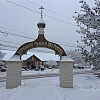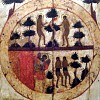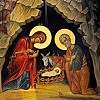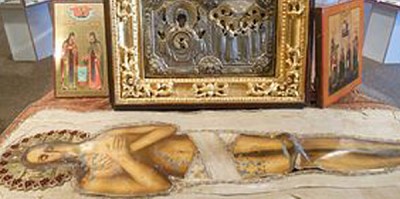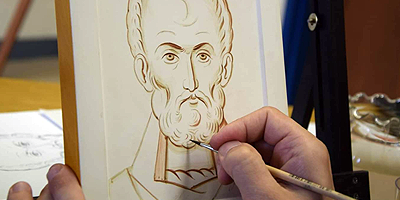The deeper meaning behind 'pre-Lent'
Since the first weapon that we need in order to acquire virtue is repentance and humility, and since the greatest obstacle to its acquisition is boasting and pride, the Fathers set forth the present trustworthy parable from the Holy Gospel first of all [on the First Sunday of the Triodion] . By means of the Pharisee, they urge us to lay aside the passion of boasting and self-conceit, and by means of the Publican, on the other hand, to seek after humility and repentance, the opposite of this passion. For, since boasting and self-conceit are the first and worst of the passions, because thereby the Devil fell from Heaven—he who was formerly called the Morning Star and who, through his pride, became darkness and was called by that name— and since Adam, the father of our race, was driven from the Paradise of delight on account of pride, the Holy Fathers exhort us, through these examples, in no way to boast of our own accomplishments or set ourselves up against our neighbor, but always to be humble; for “God resisteth the proud, but giveth grace unto the humble.”
On this Sunday [the Second Sunday of the Triodion], we commemorate the Parable of the Prodigal Son, from the Holy Gospel, which our most Divine Fathers appointed to be read after the Parable of the Publican and Pharisee.
Since there are some who are conscious of having lived prodigally from a very early age, giving themselves over to drunkenness and licentiousness and falling thereby into a depth of evils, and have reached despair, which is the offspring of vaunting; and since, for this reason, they have no desire to devote themselves to the pursuit of virtue, putting forward the swarm of their evils as an excuse, and since they are forever falling into the same evils and worse than these, the Holy Fathers, wishing, in their paternal loving-kindness towards such people, to lead them away from despair, placed this parable here after the first one, pulling out the passion of despair root and branch and arousing them to acquire virtue, and, through the story of the Prodigal Son, showing God’s loving and exceedingly good mercies towards those who have sinned very greatly, proving from this parable of Christ’s that there is no sin which can overcome His love for mankind.
- Excerpted from an article on the Orthodox Outlet for Dogmatic Enquiries website
|
| ||||||||||||
175 St. Tikhon's Road
Waymart, PA 18472
Fri
19Apr6:00 Midnight Office, Matins and hours
10:20 9th hour, Typica and Presanctified Liturgy
4:30 MatinsSat
20Apr7:40 Hours & Divine Liturgy
4:00 VigilSun
21Apr9:10 Hours and Divine Liturgy
4:30 Vespers & Small Compline


